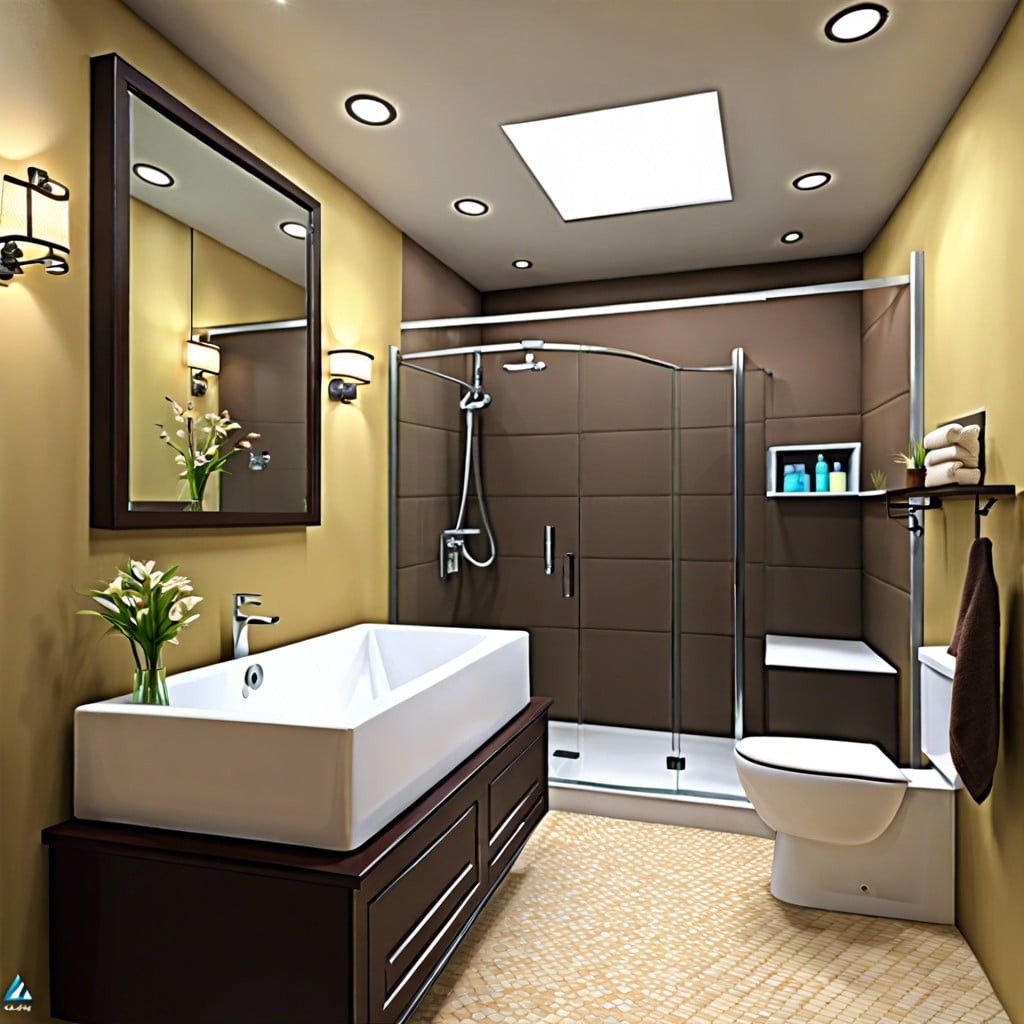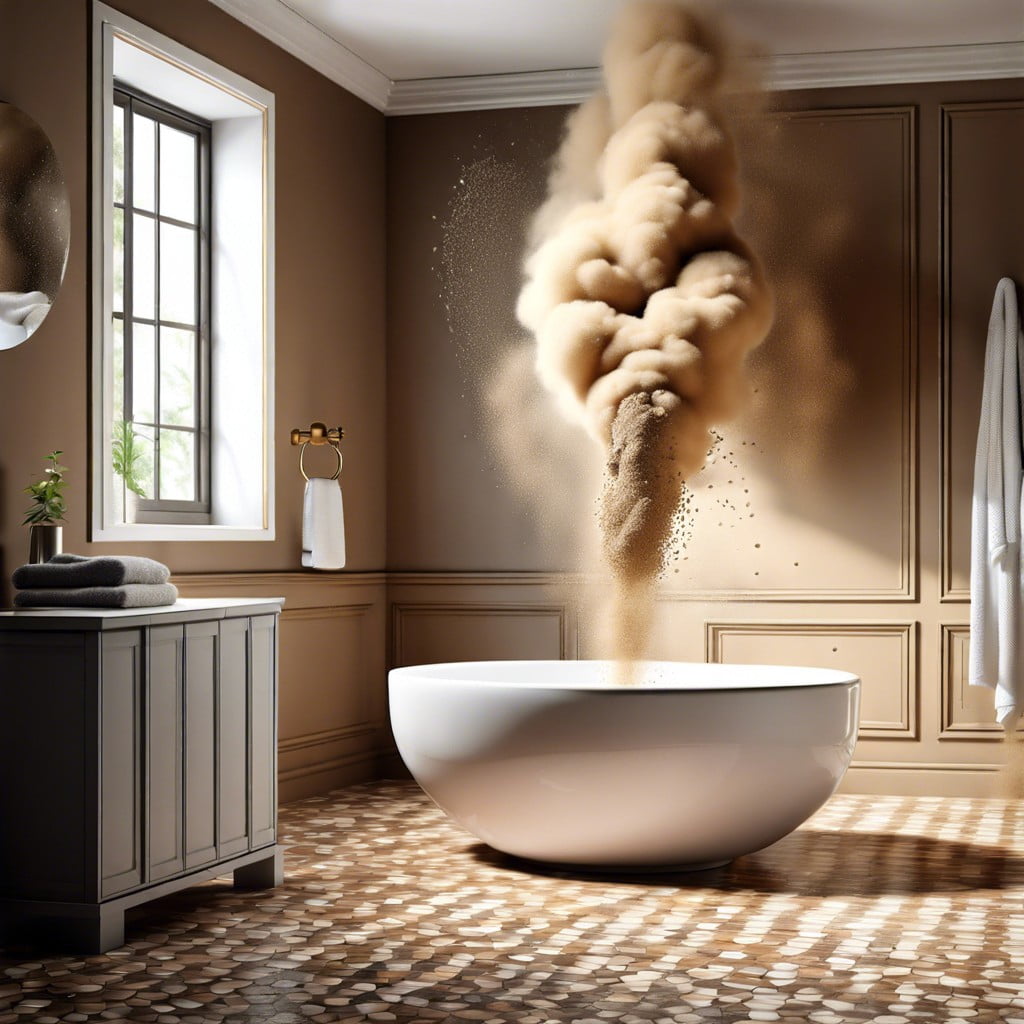Last updated on
Learn effective, quick, and sometimes surprisingly fun ways to banish poop smell from your room for good.
Key takeaways:
- Open windows for fresh air and identify the source.
- Act fast to clean fresh stains and dry the area.
- Use a vinegar solution or enzymatic cleaner for odor removal.
- Increase outdoor breaks for pets to prevent indoor accidents.
- Take your pet to the vet for recurring poop smell issues.
Before You Start

Open windows to let in fresh air; nothing tackles unpleasant odors better than a good breeze.
Identify the source of the smell. Did it happen on the carpet, furniture, or floor? Knowing this saves you from a wild goose chase.
Gather your cleaning supplies. You’ll need gloves, cleaning cloths, a scrub brush, and some effective cleaning solutions like vinegar or baking soda. Being prepared is half the battle.
Make sure you’ve got proper ventilation and possibly a face mask. Trust me; your nose will thank you.
Clear the area of any unnecessary items to make the cleaning process smoother. Less clutter means fewer hiding spots for the odor.
Cleaning Fresh Stains
Got fresh poop stains giving your nostrils a workout? No worries. Here’s what you need to do:
Act fast. Scoop up or blot the solid mess ASAP. Speed is key.
Use paper towels or disposable cloths. Let’s keep it hygienic.
For any remaining residue, grab some mild soap and warm water. Scrub gently but thoroughly.
Dry the area quickly. Dampness can invite that lovely eau de poop right back.
See? Easy peasy, stink-free squeezy!
Vinegar Solution
Consider using a vinegar solution for its natural deodorizing properties. Here’s why it works and how to do it:
Vinegar contains acetic acid, which neutralizes odors on contact. Plus, it’s a natural disinfectant, making it great for any related bacteria causing the smell.
Mix equal parts water and white vinegar in a spray bottle. Spray it generously on the offending area. Let it sit for about 5-10 minutes to ensure it breaks down the odor molecules.
After it sits, blot it up with a clean cloth or paper towel. The vinegar smell will dissipate as it dries, taking the poop smell with it.
For carpeted areas, use a soft brush to gently work the solution into the fibers before blotting. This helps to penetrate deeper and ensures the odor doesn’t linger.
And remember, this method is pet-safe, so you don’t have to worry about Fido sniffing around later.
Enzymatic Cleaner
Yes, the term “enzymatic cleaner” might sound like science fiction, but it’s your new best friend. These cleaners aren’t just masking the funk; they break down the organic material causing the odor.
Here’s why they shine:
They’re super effective because they use enzymes to eat up all the odor-causing molecules. Think of these enzymes as Pac-Man, gobbling up the ghosts of bad smells.
They specifically target organic stains, which are often the culprits behind persistent odors.
They’re pet-safe. If Fido’s the reason behind the stink, no worries. It’s safe for his paws too.
So, grab a reputable enzymatic cleaner, follow the instructions on the bottle, and let those microscopic warriors do the dirty work for you. Poof, smell be gone!
Increase the Frequency of Outdoor Breaks
Taking your furry friend outside more frequently can significantly reduce poop mishaps inside. Think of it as eliminating the problem at its source!
Here are some easy ways to do this:
- Set a timer. Use your phone or kitchen timer to remind you to take your dog out every couple of hours.
- Integrate it into your schedule. Tie outdoor breaks with your daily routines, like before meals or TV time.
- Make it fun. Turn these breaks into mini-adventures. Your pet will love the extra attention and exercise.
A little extra effort here can mean a lot less odor control later. And hey, your four-legged buddy won’t mind at all!
Take Your Dog to the Veterinarian
Sometimes, that stubborn poop smell isn’t just about what your furry friend left behind, but something more concerning. If your dog has recurring bowel issues, it might be time for a check-up with the vet. Here’s why:
- Frequent or particularly foul odors can signal a dietary issue. A vet can recommend food changes.
- Persistent stomach problems might indicate a more serious health concern, such as infections or allergies.
- Your dog might need medication to help with digestion or to address a specific health problem.
- In the end, a happy, healthy pup means fewer smelly surprises for you to deal with at home. And let’s be honest, nobody wants their house to smell like ” Eau de Dog-poo.” So, off to the vet you go!
Spray Air Freshener
When things get smelly, reach for an air freshener designed to neutralize odors, not just mask them. Here are some tips to consider:
Pick a scent you actually like. There’s nothing worse than swapping one bad smell for another overwhelming one.
Opt for natural options if possible. Essential oil-based sprays can freshen the air without adding chemicals.
Use it sparingly. Too much air freshener can make the room stuffy and unpleasant.
Target the source first. Spray around the offending area to attack the smell head-on.
Don’t forget about ventilation. Open windows or use a fan to help fresh air circulate, complementing the air freshener’s effects.
With these steps, you’ll have a fresh-smelling room in no time. Or at least somewhere your guests won’t flee from!
Recap




